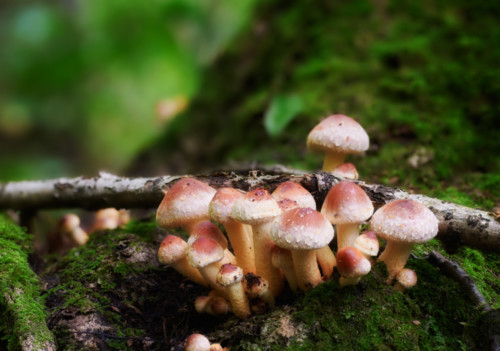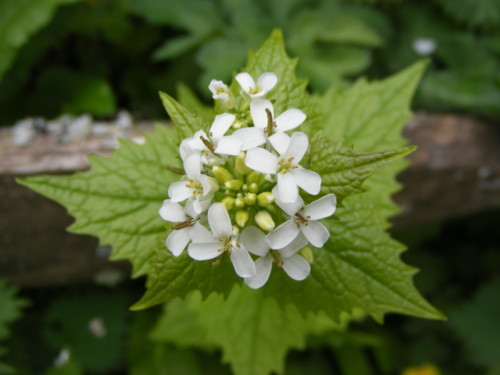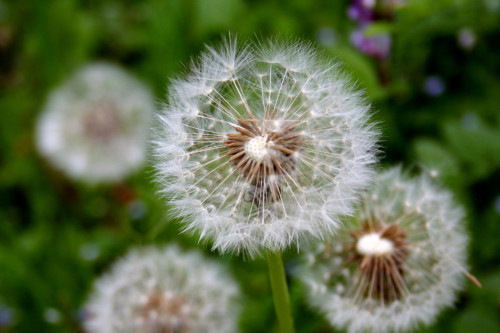Radical Organizing With Weedy Resistance
“What can plants and animals teach us about cultural and political organizing?”
That is the question behind Weedy Resistance, a new salon-style workshop series founded by Christopher Kennedy, Ellie Irons, and Anne Percoco that got started after the 2016 election. All three founders operate, in varying degrees, at the intersection of design, art, and science, and true to its salon roots, Weedy Resistance is predicated on the idea that there is knowledge to be shared and gained through scientists, artists, and activists being in conversation with each other– knowledge that can be essential in today’s literal and political climate.
Where Weedy Resistance diverges from tradition is in applying the lens of nature to all of its discussions.
“There’s a lot of wisdom that science and ecology lends itself to,” Kennedy explains to GC. “Like how chameleons can change their skin, or how seeds disperse in a very particular way, or how mushrooms adapt to toxins in the soil.”
Considering their political bent and environmental focus, it’s of little surprise that Weedy Resistance was born out of the aftermath of Donald Trump’s election.
“People want more than just a rally,” Kennedy reflects on the creation of Weedy Resistance. “They want something they can tangibly do in their own communities that’s long-term. I think people are feeling really frustrated with this idea that you just post something on Facebook and that’s enough…How do we actually work civically, politically, culturally across all these different disciplines to make change that makes sense?”
“People want more than just a rally,” Kennedy reflects on the creation of Weedy Resistance. “They want something they can tangibly do in their own communities that’s long-term.”
Flouting the standard workshop conventions (mind-numbing powerpoint, dry questions, passive audience), Weedy Resistance looks to gather “pragmatic tactics” (as Kennedy calls them). Topics are oriented around the inextricable politics of environmentalism, ones that reach beyond legislation and into the very cultural mores that define civilization apart from Nature.
“The first session we did was on borders, connecting the recent immigration ban, and thinking about how plants and animals cross borders around the world– yet we still have these delineations,” Kennedy says of the event, which took place in March at The Parsons Transdisciplinary Design Studio and had a waiting list of 20. In addition to the more esoteric philosophical debates, participants took home edible weeds and prepared pesto from garlic mustard plants foraged in NYC’s own Prospect Park.
Building on the work in their first session, their second session is framed around networks. “The idea of networks came up when we were talking about what is the equivalent of ‘digital,’ of the internet, for nature,” Kennedy explains, adding as an example, “there’s a lot of fungi networks and trees communicating with other organisms.”
In addition to the more esoteric philosophical debates, participants took home edible weeds and prepared pesto from garlic mustard plants foraged in NYC’s own Prospect Park.
In embracing the salon model and redefining the idea of a “workshop”, Weedy Resistance is also curious about incorporating other mediums. Of late, they have been especially interested in expression through dance.
“Ellie and I have been working a lot with movement research and this idea that using that field practices– you know when ecologists are taking samples or looking at soil, picking plants– is a dance,” Kennedy muses. “We really want to sort of extend that into the conversations and say, ‘Hey, when you’re out there investigating your neighborhood, all the insects, the plants– that actually is a performance.’ I think that can be powerful because people feel so scared when you call it ‘dance’– it becomes so formalized. But movement– I think it helps people remember and create conversations and invite dialogue.”
At its most essential, Weedy Resistance is about cultivating meaningful relationships– not just between people, but between people and nature, and the species we share the world with. The use of dance becomes a way of communicating with one another and with nature, seed banks become an act of reverence and support, garlic mustard pesto a way of recognizing the value in something otherwise seen as useless.
“Anthropocene has been overused and is sort of a buzzword now,” Kennedy laments, referring to the concept that we are living in an era fundamentally defined by human impact, as opposed to adhering to actual the geologic eras. “We’re really thinking about what’s the role of non-humans as well…We’re interested in street tactics– what specifically can you do on the street, either at a protest or at a rally, that includes non-humans,” Kennedy adds. “So as much as it is the voices of people, it’s the voices of animals too.”
To learn more about Weedy Resistance, or to attend their events, check out the organization’s website.





































